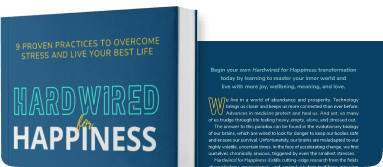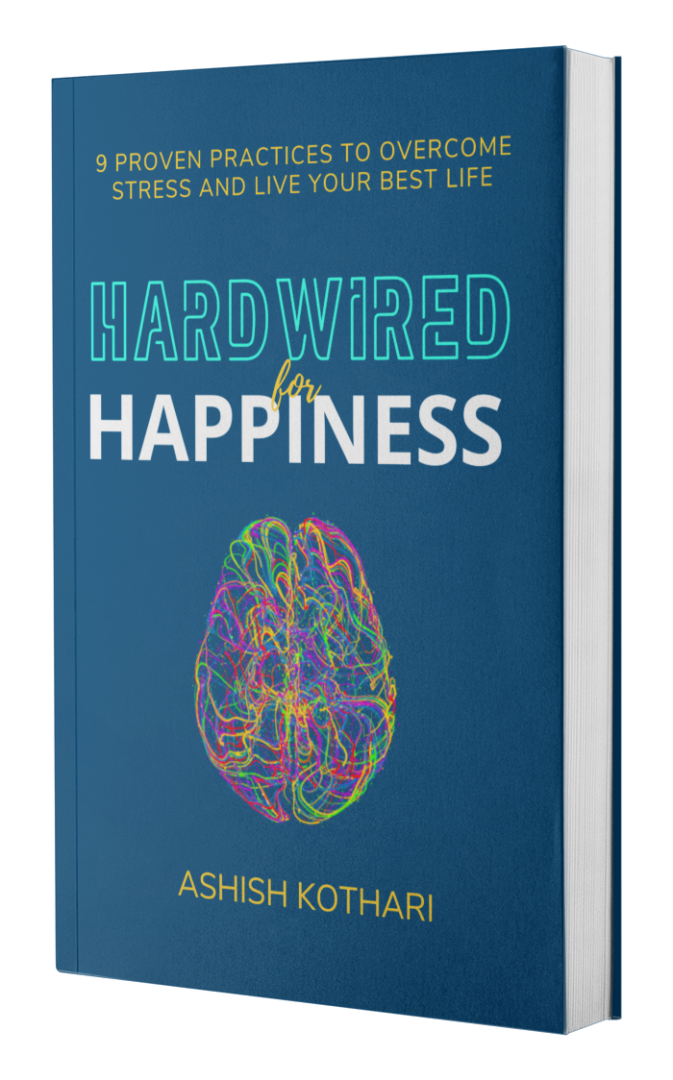Better Self, Better Performance: Daily Habits from Sunrise to Sunset

Here is a common expression, “I’m back to back today.” From sunrise to sunset, we do not give ourselves a moment to breath. By repeating this pattern day after day as part of our professional treadmill, we are creating the perfect recipe for stress, anxiety and burnout, not for optimal performance. The importance we place on our well-being is becoming incredibly important as we look to live a longer, higher quality life. Well-being is a subjective measure and while there is no single consensus around its definition, most experts agree that it includes positive functioning at the physical (full of health and energy), mental (feeling content and happy), and spiritual level (satisfaction with life and fulfilment). I have yet to meet a person who couldn’t benefit from greater energy and life force.
How can you unlock greater energy and life force by incorporating a focus on your body, mind and spirit throughout our day? Let’s split your day into three parts and explore how you can form habits that can enable you to unlock your better self and performance:
- Starting Mindful
- Harnessing Focus
- Ending Playful
Starting Mindful
The start of our day can set the tone for how we establish a daily rhythm and flow. However, there is a prevailing habit that may knock us down before we even get out of bed.
According to studies and surveys, approximately 66% to 80% of smartphone users reported checking their phones within 15 minutes of waking up. This simple ‘reach’ leads to three effects. First, increased stress levels by exposing us to potentially stressful or negative information within work-related emails. This influx of information and stimuli early in the morning may contribute to increased stress levels through the day. Second, reduced productivity leading to a loss of focus and time that may delay getting ready for the day or beginning important tasks. Finally, negative impact on mental well being with work-related notifications contributing to feelings of anxiety or overwhelm by the day’s demands before even getting started.

The opportunity is to create a personal boundary from work-related emails at the start of your day (and possibly throughout) by exercising “Healthy Selfishness.” We discussed this concept with Blake Bauer, author of ‘You Were Not Born to Suffer,’ on the Flourishing Edge Podcast. By establishing a boundary between yourself, your phone and emails, you have an opportunity to take agency with how you start your day with your purpose in mind. As an alternative, replace checking email with a 10 minute mindfulness practice – breathing, meditation, or light stretching. This is a proven practice to counter the negative effects in several ways: First, it increases focus and mental clarity by calming the mind and bringing focus to the present moment, thereby improving ability to concentrate and be more attentive through the day and setting the tone for morning activities. Second, reduces stress and anxiety by establishing a peaceful and intentional mindset and finally developing greater emotional resilience by tuning into thoughts, feelings and body sensations. By understanding yourself, you can identify sources of unease and make conscious choices that align with your values, priorities and goals.
Prioritising your personal time and not ‘kicking-off’ your day with work-related communication can start creating healthy work-life boundaries. Your mind will start off strong, ready for your day.
Harnessing Focus
As we venture into the next part of our day, we explore how high-performing professionals often struggle to find a balance between their daily tasks, meetings and personal well-being. While it’s easy to get caught up in our daily “grind”, focusing too much on “tasks” without investing in our well-being can lead to decreased productivity and burnout. One practice that can be beneficial is to establish your flow by increasing your ability to focus for longer periods in your our day.
In our world filled with notifications, interruptions, and distractions, it can be hard to focus. Over the last twenty years, with the rise of email and social media, we have all become dopamine addicts—constantly searching for our next hit by checking email, news, or the abundance of red blinking notifications that pop up on our screens. Research has shown that on average, Americans check their phones 344 times per day, which is approximately once every four wakeful minutes, assuming we sleep for eight hours (which most of us don’t)! The effects of constant switching and multitasking on the brain are very well researched. There is up to a 40 percent reduction in productivity, knocking off up to ten points from our IQ and up to 50 percent higher likelihood of making mistakes, higher degrees of mental stress/fatigue, and lower ability to focus and learn.
By hacking your environment to minimize distractions, you can regain control of your most valuable asset—your mind—and significantly improve your performance by focusing your attention on what matters in that moment. Adopt healthy digital practices to minimize distractions, including deleting social media apps from your main devices or setting time limits on how long you spend on them. Decide on three to four designated blocks of time in which to check and respond to email versus being always on. Put your phone into airplane mode when working on a focused activity or in meetings. If you must, assign an emergency contact to come find you during this time so you can truly unplug and focus.
Defining specific periods and forming habits to tackle daily tasks, such as email, meeting with colleagues or even checking social media will enable you to find your flow and maximize your daily output .
Ending Playful
Play is what we did when we were children growing up. We could spend hours in fantasyland making up adventures and letting our imaginations run wild. But as we get older, we get preoccupied with our daily routines. Devoid of play, our life loses its magic as it gets crowded with mundane daily chores before we collapse exhausted every night in bed. When we do carve out some leisure time, we are more likely to zone out in front of the TV or on our phone. When was the last time you remember doing something just for the fun of it?
Stuart Brown, MD, the founder of the National Institute for Play, has studied play for decades. In his research, play has been shown to release endorphins, improve brain functionality, stimulate creativity, help us deal with stress with greater ease, and laugh more often. Integrating play into your life can benefit your relationships, job, and mood.

As you wind down your day, here are two tips that you can perform to incorporate play and digital sunsetting. First, engage with your spouse and/or kids at least a couple of nights a week in a fun activity, whether it’s playing games, cooking, or spending time outside together. Spending time with the children in your life, observing them as they play, listening to their conversation, and joining in, will act as constant reminders of your own youth when you could lose yourself in play. Second, practice digital sunsetting (and sunrising!). Turn off screens at least sixty if not ninety minutes before you go to bed, as light plays a key role in regulating our melatonin production, which in turn is key to regulating our sleep-wake cycle (circadian rhythm). At the very least, set your devices to switch to night mode, which reduces the level of blue light that keeps you awake if you use your phone before bed.
By incorporating play as you digitally sunsetting, you nourish your mind, body and spirit with practices that bring harmony into your evening to prepare you for the next leg of your competition the following day.
IN CLOSING
Integrating a few of the tips can enable better performance by unlocking your best self by prioritizing your well-being. Investing in both physical and emotional self-care activities, such as mindfulness practices, routines to remove distractions, and incorporating play into your day, can enable you to achieve a sense of wholeness that translates into higher levels of performance and satisfaction in all areas of life. It’s time we recognize that when we take care of ourselves, we can excel in all areas of life. As a professional and/or parent, the opportunity is finding and forming a habit that suits your circumstances knowing that this practice contributes to your well-being. A well-rounded approach to personal growth will not only enhance career performance but also boost overall satisfaction and happiness. Norm Kelly, a Canadian politician, said it best, “You cannot pour from an empty cup. If our ultimate goal is to dedicate our lives to filling the cups of others, we have to make sure we fill ourselves up first.”
As you wake up today, are you ready to fill your cup?
To learn more about ‘You Were Not Born to Suffer,’ feel free to connect with Blake via LinkedIn or at www.unconditional-selflove.com.
Listen to the full podcast with Blake below.
Access and subscribe to the all of the episodes of the Flourishing Edge Podcast here.
Visit the REWIRE Program powered up by the HAPPINESS SQUAD Community and experience your shift within your 30 day risk-free trial today. Cultivate your Self-Awareness, Gratitude, Purpose and Community and personal growth more through the 9 Hardwired for Happiness practices. Integrate simple and proven micro-practices grounded in the science of happiness and neuroscience of habit formation in a 5 minutes a day.
Make Flourishing Your Competitive Edge.


